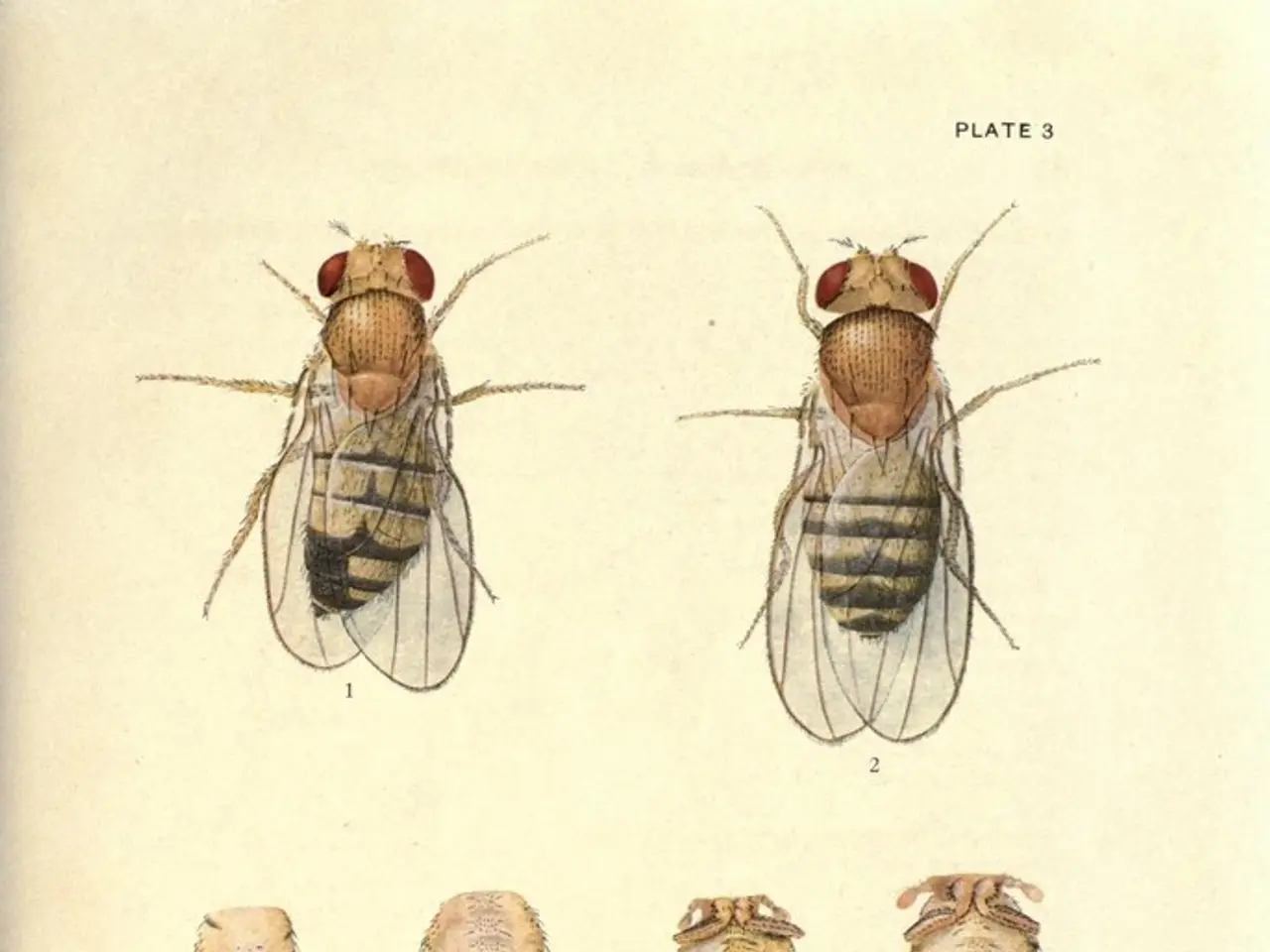Organic Strategies for Managing Garden Insects
In the quest for a greener and healthier garden, organic pest control methods are gaining popularity. This approach combines natural sprays, physical barriers, companion planting, soil amendments, and beneficial organisms to create an eco-friendly, sustainable solution for garden pest management.
For those seeking a natural insecticide, Diatomaceous Earth, available in a 4.4 lb size, is an effective option against a variety of garden pests. Mosquito Dunks are also available for controlling mosquito larvae in standing water.
When it comes to natural sprays, garlic and onion spray, pepper and chili sprays, and neem oil spray are all effective in repelling pests. Prepare these by blending the ingredients, letting them sit overnight, and then spraying on plants. Neem oil spray, in particular, is highly effective against many common garden pests while being safe for beneficial insects.
Physical barriers play a crucial role in pest control. Insect exclusion barriers like lightweight mesh netting can protect plants from larger pests, while copper tape prevents slugs and snails from climbing into garden beds. Sticky traps capture flying insects like whiteflies and thrips.
Companion planting is another natural method to deter pests. Plant pest-repelling herbs and flowers such as basil, thyme, marigolds, peppermint, and lemon balm alongside vulnerable crops. This can confuse or deter pests and improve overall garden health.
Soil amendments like coffee grounds or wood ash can repel slugs and snails while enriching the soil. These organic substances can be sprinkled around plants to create a natural barrier against these pests.
Beneficial organisms, such as ladybugs and nematodes, can help reduce pest populations naturally without chemicals. These beneficial organisms feed on harmful pests like root grubs and fungus gnats, providing a natural solution to pest problems.
For those looking for additional garden solutions, a Deer Proof Cedar Complete Raised Garden Bed Kit is available in various sizes. This kit offers a solution for those dealing with deer in their gardens. Flies Be Gone Non-Toxic Fly Trap and a Wooden Bat House with a single chamber are also available for those dealing with flying pests and bats, respectively.
Finally, for Japanese Beetle control, Milky Spore Powder is an effective organic solution. This powder works by introducing a bacterium that is harmful to Japanese Beetles, providing a long-term solution to this common garden pest.
By combining these strategies, gardeners can implement an eco-friendly, sustainable approach to garden pest management that minimizes chemical use while protecting beneficial organisms and promoting plant health.
[1] Organic Gardening: A Complete Guide to Growing Naturally, Forrest and Kim Starr, 2019 [2] The Organic Gardener's Handbook of Natural Insect and Disease Control, Mallory McDuff, 2017 [3] Rodale's Ultimate Encyclopedia of Organic Gardening, Fern Marshall Bradley, 2015 [4] The Vegetable Gardener's Bible, Edward C. Smith, 2015 [5] The Organic Gardener's Handbook of Natural Pest and Disease Control, Fern Marshall Bradley, 2018
- To complement your home-and-garden lifestyle, consider Diatomaceous Earth for natural insect control, garlic and onion spray for pest repellent, and ladybugs as beneficial organisms to maintain a greener and healthier garden.
- If you're looking for garden solutions that promote eco-friendly living, explore the Deer Proof Cedar Complete Raised Garden Bed Kit, Flies Be Gone Non-Toxic Fly Trap, Wooden Bat House, and Milky Spore Powder for Japanese Beetle control, all while following organic gardening guidelines found in books like "Organic Gardening: A Complete Guide to Growing Naturally" by Forrest and Kim Starr.




